
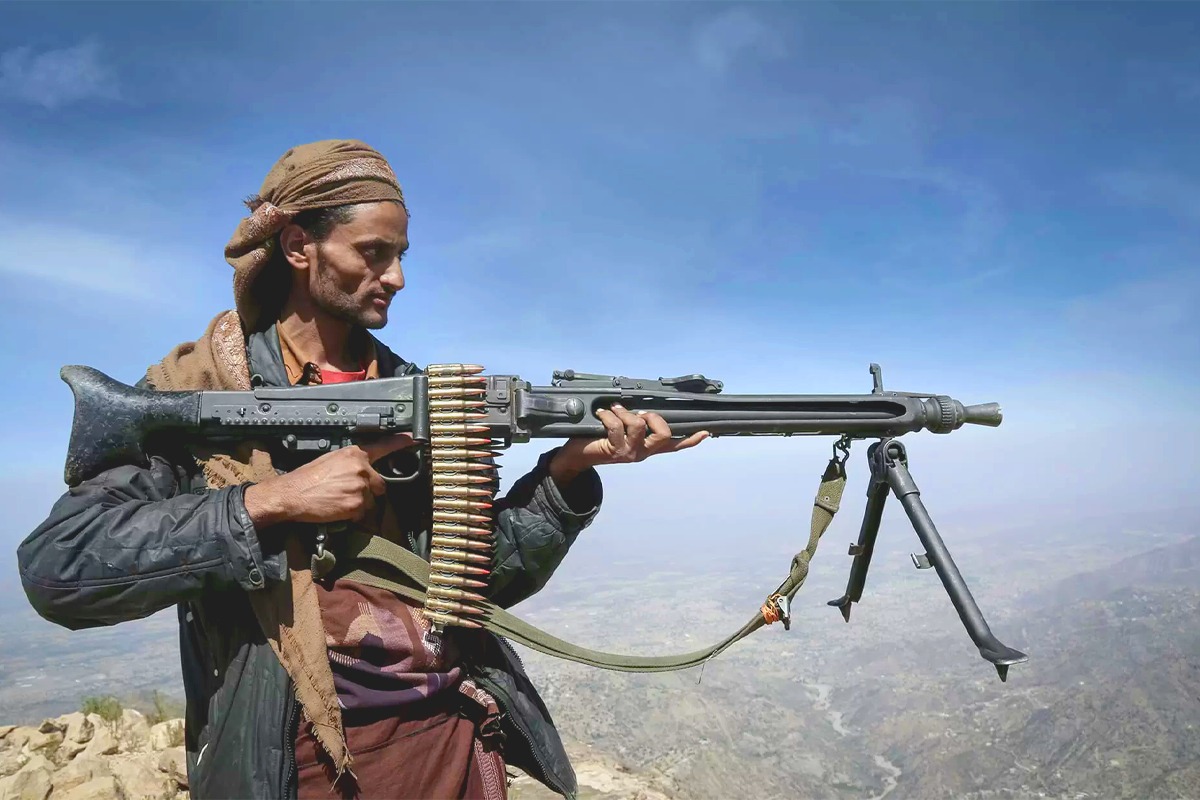
New Delhi: In the tumultuous landscape of Middle Eastern geopolitics, Yemen’s Houthi rebels have now emerged as a potent force, commanding attention far beyond their war-torn home. Recent attacks by them in the Red Sea have sent shockwaves through the international community, revealing the complex array of alliances, ideological motivations, and the potential for destabilising global impacts.
Initially perceived as a local group within Yemen, the Houthi movement catapulted onto the global stage after seizing control of Sanaa and the Yemeni government in 2014. The conflict that ensued drew in a Saudi-led coalition in 2015, sparking a protracted power struggle that is often simplistically framed as a regional tug-of-war between Iran and Saudi Arabia. However, this perspective fails to capture the nuanced transnational strategy employed by Iran, knitting together a Shi’a network under the banner of the “Axis of Resistance.”
Also Read: Sweden braces for unthinkable as Russian storm gathers on horizon
The Houthi rebels, adherents of the Zaidi sect and aligned with Iran’s interests, have gone beyond regional ambitions now. Their recent attacks in the Red Sea, targeting Israel and aligning with Iran-backed Hamas, have broadened the scope of their influence, thus making an already intricate geopolitical landscape even more complicated.
At the heart of the Houthi attacks lies a deep-seated anti-Semitic ideology. The rebels’ alignment with Iran’s anti-Israel agenda, showcased through synchronised attacks with Hamas, reveals a broader strategy guided by Tehran. These attacks serve dual purposes for the Houthi movement.
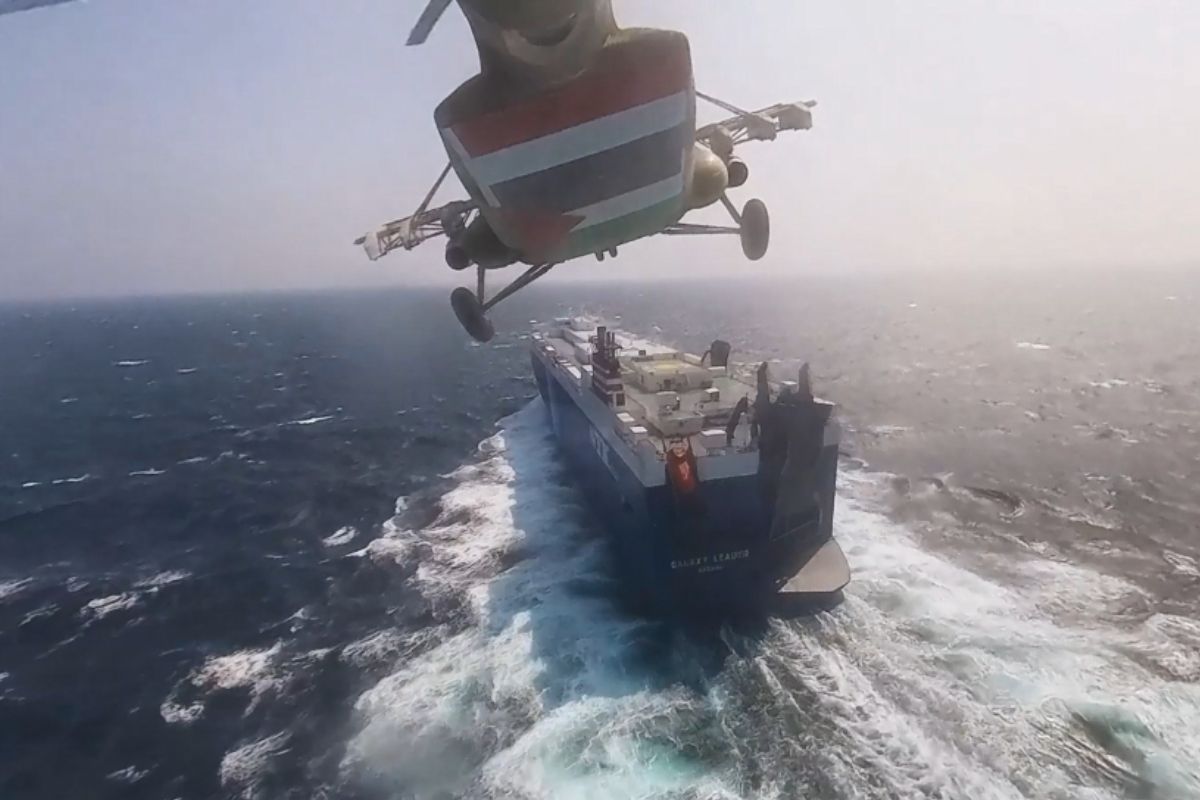
Firstly, they bolster their stance against Israel, consolidating support from Iran. Simultaneously, the Houthi propaganda machine portrays Yemen as a victim of a larger conspiracy involving Saudi Arabia, the US, and Israel. This narrative resonates locally, fuelling anti-foreign sentiment and galvanising support for the Houthi cause.
Amid the chaos of retaliatory airstrikes and ground assaults, the Houthis position themselves as guardians of the Palestinian cause, leveraging the conflict to rally against perceived Western aggression. In a televised address, Houthi leader Abdulmalek al-Houthi accused the US and UK of complicity in Palestinian suffering, potentially stoking sectarian tensions in an already volatile region.
Despite their geographic distance from Israel, the Houthi rebels have displayed a notable expansion in their operational capabilities. Recent missile and drone attacks targeting Eilat, an Israeli Red Sea resort, and threats to US bases and Gulf states underscore their potential for disruption. Their attacks on vital shipping routes in the Red Sea pose a grave concern for global trade and security.
While the Houthi movement lacks the extensive supply chain of other Iranian proxies like Hezbollah, their recent military demonstrations have showcased sophisticated weaponry such as land-attack cruise missiles, precision-strike ballistic missiles, suicide drones, and medium-range ballistic missiles exceeding a range of 1,000 kilometres, suggesting a potential enhancement in their offensive capabilities.
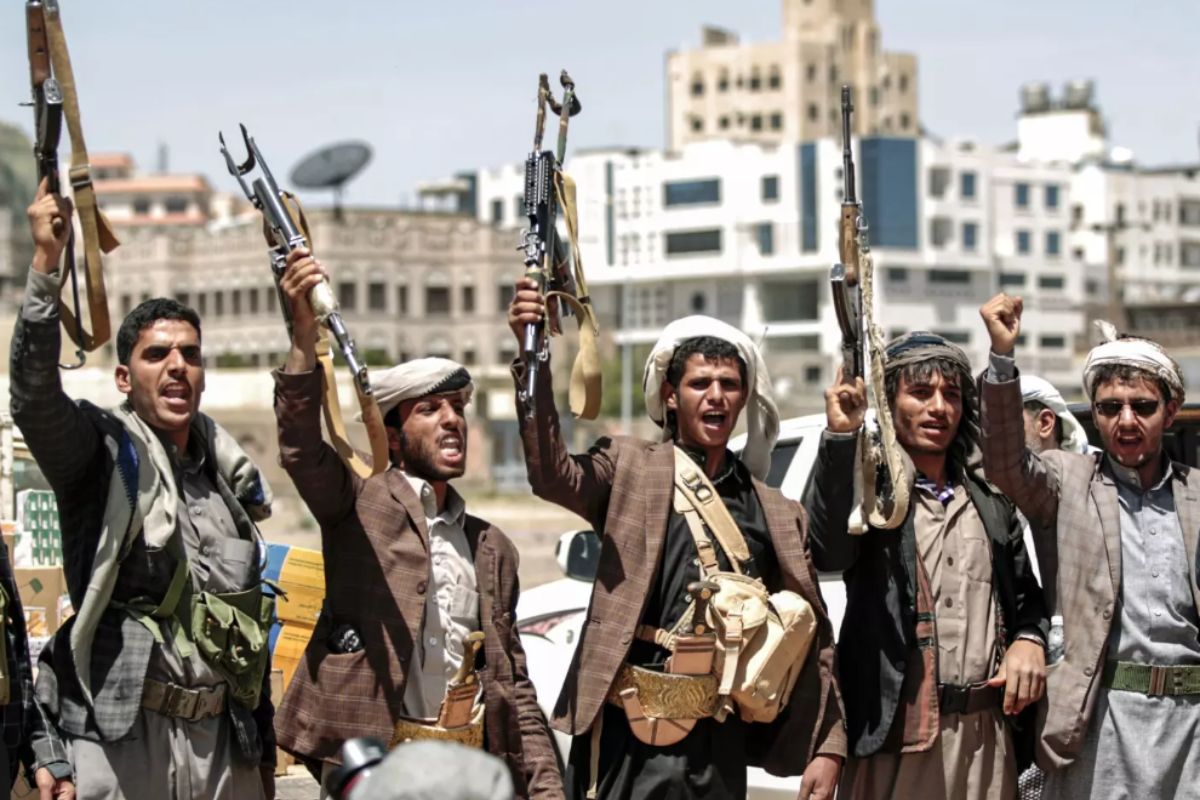
Moreover, the Houthis possess a documented track record of aiming for oil tankers and infrastructure in the Red Sea. They have once more voiced intentions to target Israeli ships in the same region. This emphasises their capacity to interfere with regional security. Their discourse has progressively centred on the UAE, primarily due to its diplomatic connections with Israel.
The efficiency of the Houthi weaponry, particularly their anti-ship missiles aimed at vital shipping routes, is a matter of significant concern. Despite Saudi Arabia and Iran supposedly normalising relations in 2023, with Iran supposedly agreeing to cease arms shipments to the Houthis—a commitment it has not upheld—the Houthis’ ongoing readiness to exploit regional tensions suggests the ineffectiveness of these diplomatic measures.
More than 80 per cent of the globally traded goods are transported by maritime vessels, making the annual shipping trade valued at over 14 trillion dollars, as reported by the International Chamber of Shipping. This constitutes approximately 16 per cent of the total global GDP.
Shipping goods by sea is generally a more economical option compared to air transport, underscoring the vital role of the shipping industry in transporting a wide range of imported products we use—ranging from clothing and automobiles to oil and gas.
The Suez Canal, directly connected to the Red Sea, serves as the sole waterway for ships journeying from Asia to Europe, eliminating the need to navigate around the African continent. Opting for the route through the Suez Canal and the Red Sea can result in a time savings of more than 30 days for ships.
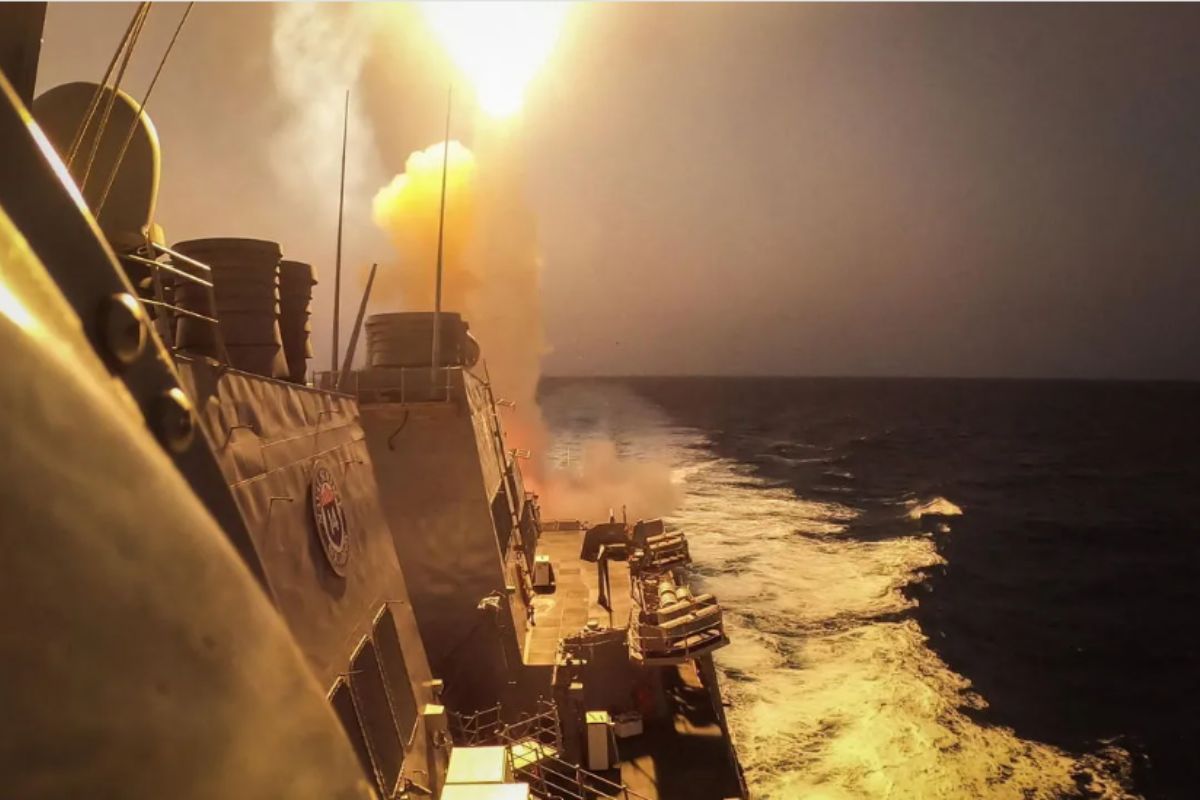
As outlined in a TIME report, the decision to circumnavigate the Cape of Good Hope in Africa could prove to be both costly and time-consuming, particularly depending on the vessel’s intended final destination. Additionally, vessels navigating through the Gulf of Aden and the Red Sea in this region are grappling with escalating costs due to rising insurance premiums, compounded by challenging weather conditions.
Following the recent attack on January 3, the French shipping operator CMA CGM declared a substantial increase in rates, with the cost of a 12-metre (40-foot) container between Asia and the western Mediterranean soaring from $3,000 to $6,000.
Similarly, the Italian-Swiss company MSC has adjusted its prices upwards, reflecting the rerouting of ships around southern Africa instead of the traditional route through the Red Sea, connected to the Mediterranean via the Suez Canal.
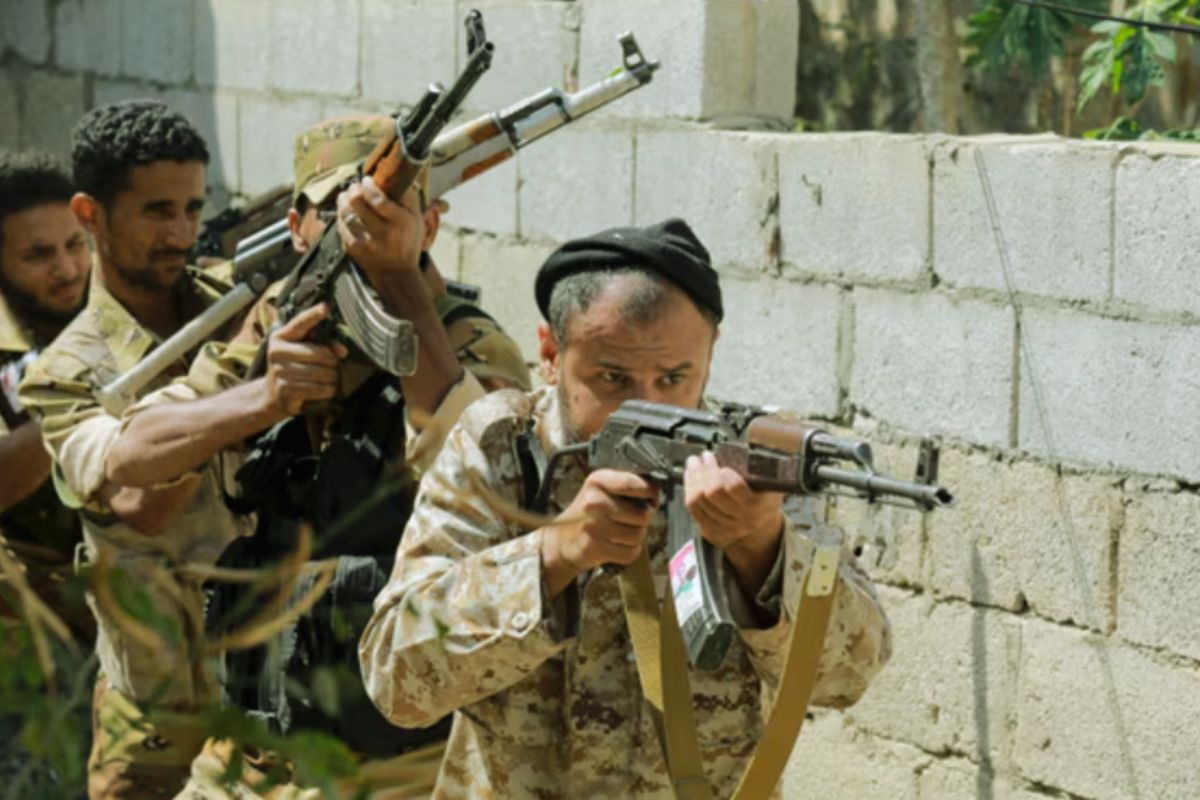
On January 2, the Danish shipping giant Maersk further prolonged the suspension of services through the Red Sea and Gulf of Aden, located south of Yemen, stating that the suspension would persist “until further notice.”
The actions of the Houthis will inevitably add complexity to the delicate talks between Saudi Arabia and the Houthi rebels, showcasing their dedication to advancing Iran’s interests to the detriment of Yemen’s national security and stability in the Gulf region. Moreover, these actions might make Saudi Arabia, currently under international pressure to cease its military intervention in Yemen, less willing to participate in negotiations with the Houthis.
The assaults by the Houthis on Israel, moving beyond mere symbolic gestures, emphasise a concrete danger — one that their track record of executing advanced missile and drone attacks on Saudi Arabia and the UAE clearly demonstrates. These actions reveal a preparedness for engaging in acts of terrorism, a lack of regard for international borders, and an intent to disrupt peace in the region.
Therefore, dealing with the Houthi menace necessitates a thorough global reaction. Specifically, the US must strengthen its partnerships in the Middle East, working closely with neighbouring nations to combat imminent threats and formulate a lasting peace strategy.
Also Read: Do we want pseudo-military organisation: Iran expert on Pakistan’s BRICS aspirations | EXCLUSIVE
It is vital to impede the supply of arms and financial aid to the Houthis, especially from Iran. Using targeted sanctions and diplomatic pressures is essential to curb their operational capacities and promote their engagement in peace talks. Downplaying the significance of the Houthis or disregarding the wider context of Iran’s regional strategy could result in severe consequences. This underscores the urgency for a unified global response to safeguard regional stability and security.